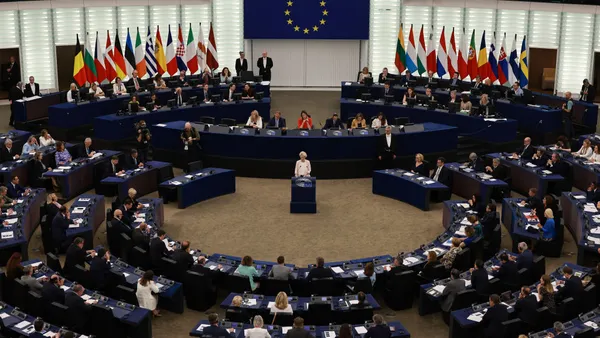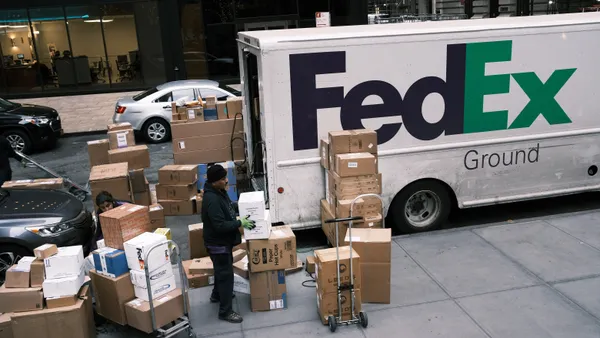Dive Brief:
- DavidsTea is reaping the benefits of insourcing its fulfillment operations, executives said on the Canada-based tea seller's earnings call last month.
- The company shipped out its first order in August after splitting up with its existing fulfillment service provider, said President, CFO and COO Frank Zitella. The transition has led to an improvement in the overall customer experience, he added.
- Despite lower revenues for the quarter that ended Oct. 28, DavidsTea's gross profit as a percentage of sales jumped from 35.1% to 37.9% "primarily due to lower cost per unit to fulfill online orders as a result of internalizing fulfillment," Zitella said.
Dive Insight:
DavidsTea's decision to insource fulfillment stems from online order delays its customers experienced in the quarter that ended Jan. 29, 2023, which the company said negatively impacted its sales as it lost frustrated consumers.
As a result, the company terminated its agreement with an unnamed fulfillment service provider on July 23, and it internalized fulfillment services for both Canada and U.S. customers by the following week. The company's online orders are picked and packed at its Montréal warehouse before being shipped via the U.S. Postal Service or Canada Post, according to its website.
DavidsTea went in-house rather than using another third-party provider after determining "no other organization could match the entrepreneurial spirit and innovation required to ensure we improve the overall brand experience for our consumers and our own staff," Zitella said.
Although executives are upbeat about insourcing fulfillment, DavidsTea is currently in the midst of a critical fourth quarter after a stretch of underwhelming financial results.
Sales fell from $16.2 million to $12.1 million year over year for the quarter that ended Oct. 28. CEO and Chief Brand Officer Sarah Segal attributed the sales woes to issues stemming from fulfillment failures under the previous provider and "a persistent challenging economic environment."
"We are confident about meeting an expected increase in consumer demand during the revenue-intensive fourth quarter, including the holiday season," Segal said.














